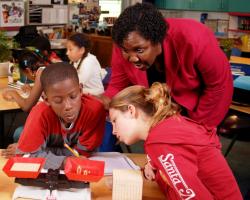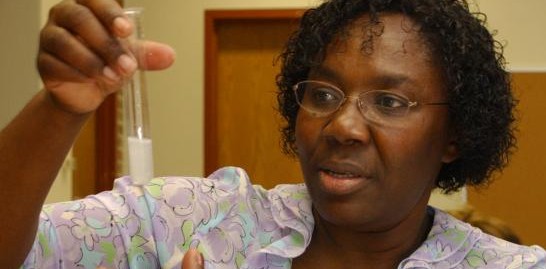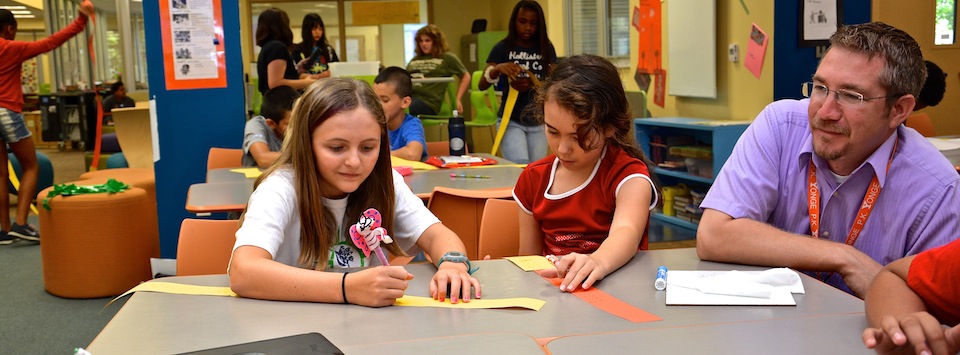PKY-COE host gathering to map out transformation of middle school science education
Bolstered by a $5 million grant last year from the National Science Foundation, a collaborating faculty research team from P.K. Yonge Developmental Research School and UF’s College of Education has been studying how to transform middle school science curricula and improve student learning. Team leaders recently hosted 40 teachers and administrators from 10 partnering, rural school districts at P.K. Yonge to discuss strategies for meeting those goals.
The gathering was the first of a quarterly series of meetings scheduled for the five-year project, named U-FUTuRES, or University of Florida Unites Teachers to Reform Education in Science. To facilitate the transformation effort, the researchers have created a Science Teacher Leadership Institute to train teacher-leaders to lead district-wide implementation of a new, research-proven, middle school science curriculum.

UF science education professor Rose Pringle works with students in a P.K. Yonge middle school science class.
The researchers’ aim is to narrow the gap in science learning between American students and their peers in higher performing nations.
At the core of this initiative is the new curriculum called IQWST, or Investigating and Questioning our World through Science and Technology. P.K. Yonge and several other institute-partnering schools are already pioneering the new middle school science curriculum design, which has students conducting daily investigations of science phenomena, learning how to use scientific reasoning to support their claims, drawing on past science learning and experiences, and developing critical thinking skills.
During last month’s institute meeting, the developers and researchers behind IQWST—P.K. Yonge director Lynda Hayes, UF science educator Rose Pringle, and Joe Krajcik from Michigan State University—explained how to implement the new curriculum, as well as how to support existing science teachers in Palm Beach County.
Hayes is the principal investigator of the NSF grant; Pringle and Krajcik are co-PIs. Krajcik told the visiting educators that the IQWST curriculum will align with the more rigid K-12 science standards now being developed by a collaborative of more than half of the states.
“Visiting faculty left impressed by P.K. Yonge students’ use of scientific terms, their critical thinking skills, and the level of activity in the P.K. Yonge science classes,” Hayes said.
Now in the third year of using the IQWST curriculum, P.K. Yonge science instructors in the middle grades report significant improvements in student learning in their classes. According to Hayes, school faculty consider last year’s 10 percent increase in the number of students scoring at level 3 or above (on a scale of 5) on the 8th grade FCAT science test a positive trend resulting from their efforts to change the way their science curriculum works.
“Partnerships supported by this project show promise in a broad scale transformation of middle school science education to meet the needs of today’s students and to plant seeds for tomorrow’s scientists,” Hayes said.






